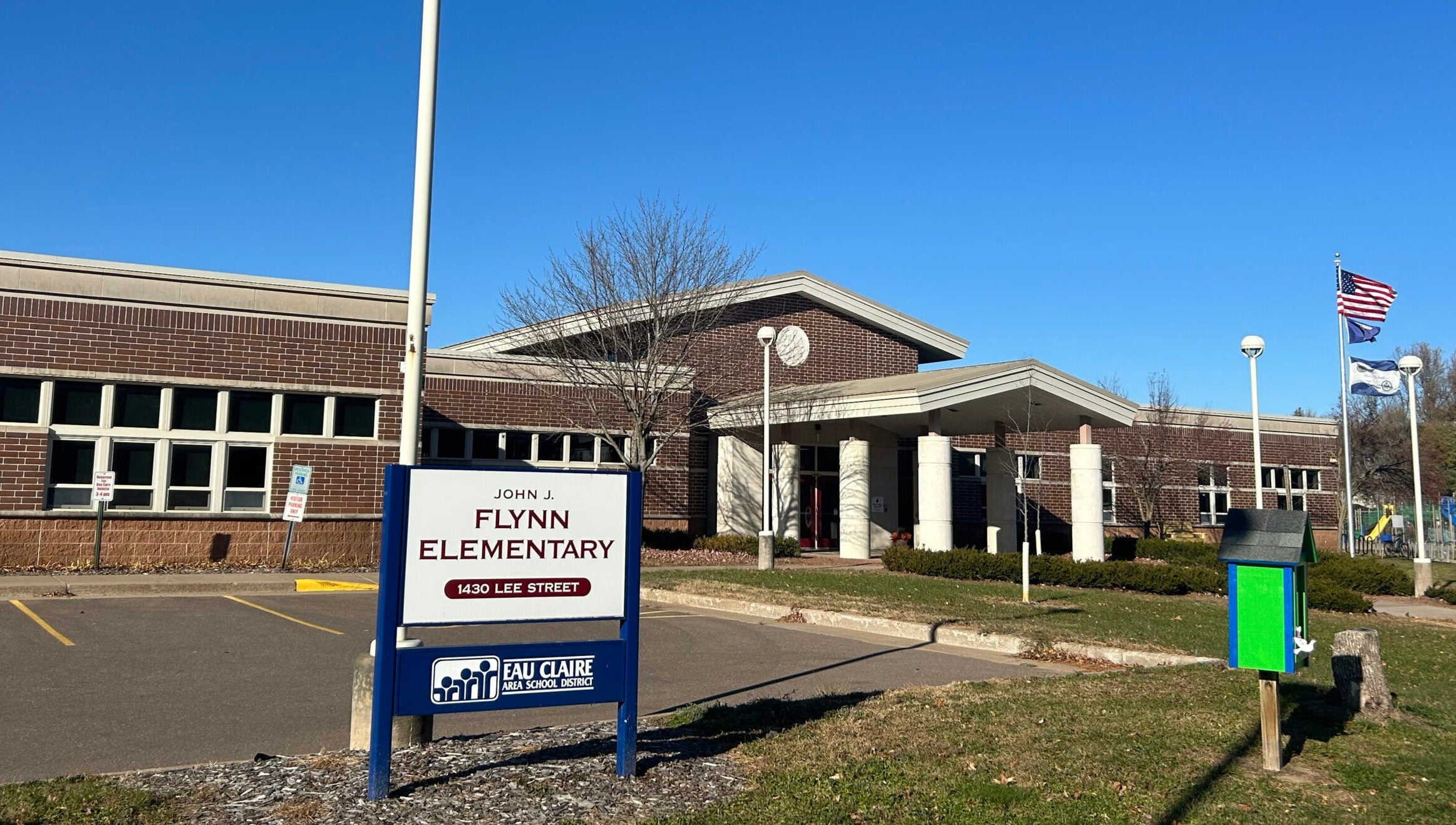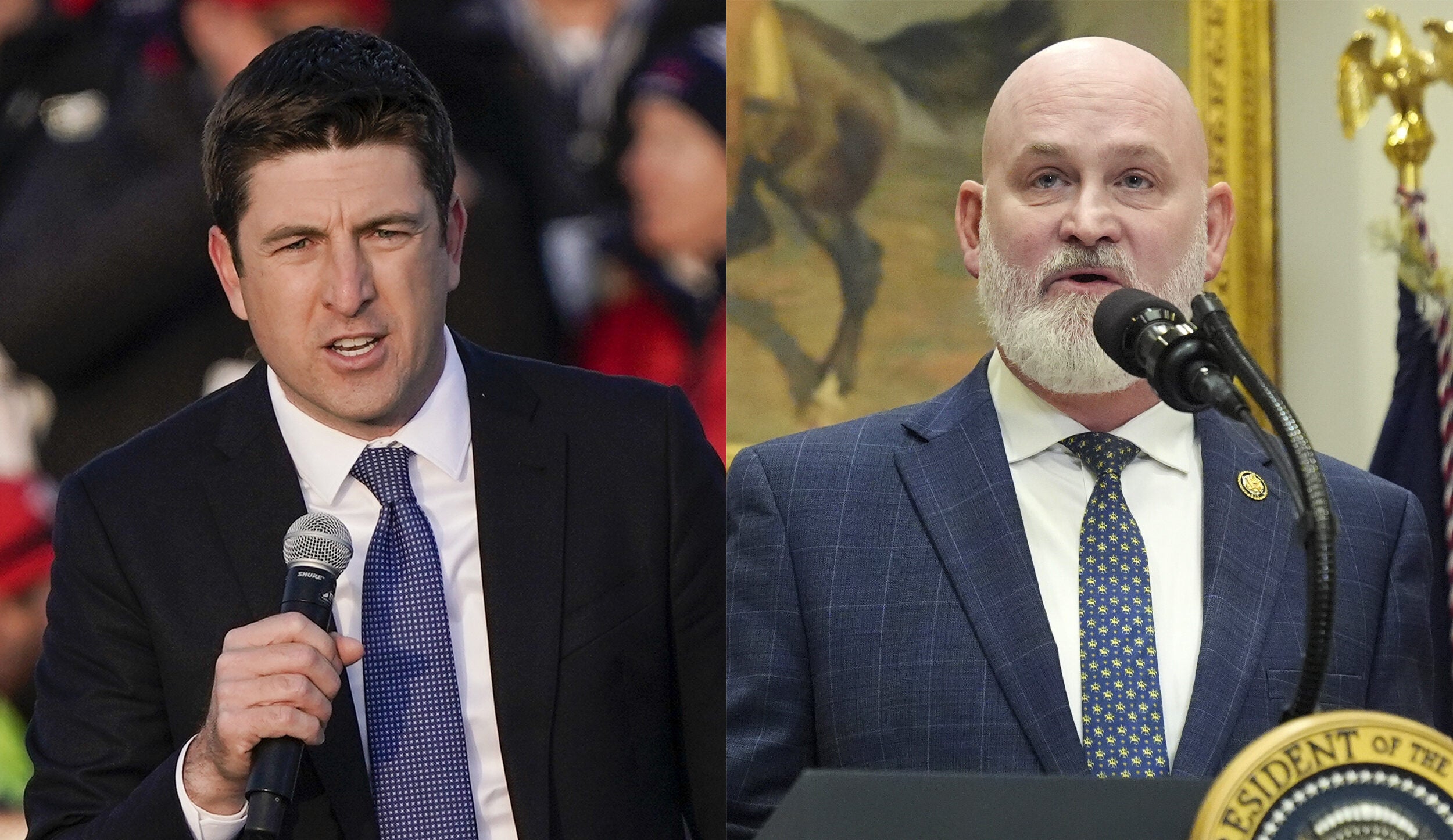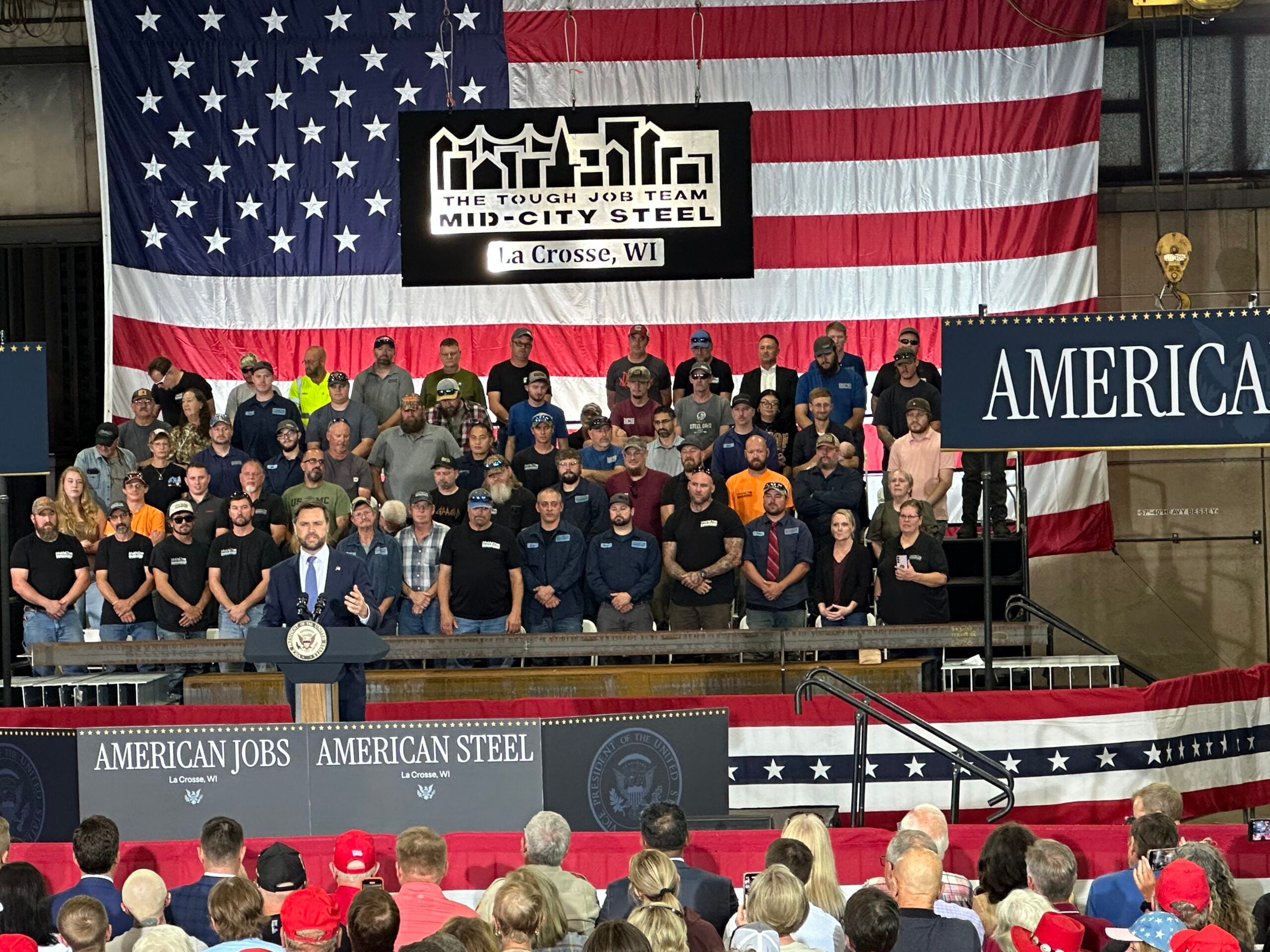The race for president will be on full display in western Wisconsin on Wednesday as both major presidential campaigns visit Eau Claire on the same day to speak to voters.
For Eau Claire City Manager Stephanie Hirsch, the dual visits are thrilling.
“Even if it’s only for an hour, and even if it’s because of a campaign, to have all eyes on Eau Claire, thinking about how awesome we are and also what our needs might be in the middle of the country is pretty fun and exciting,” said Hirsch, who is a nonpartisan official.
News with a little more humanity
WPR’s “Wisconsin Today” newsletter keeps you connected to the state you love without feeling overwhelmed. No paywall. No agenda. No corporate filter.
Democratic Vice President Kamala Harris’ campaign announced last week that she would be visiting the western Wisconsin city with her pick for vice president. Harris revealed Tuesday that her running mate is Minnesota Gov. Tim Walz.
On Monday, former President Donald Trump’s campaign announced his vice presidential nominee U.S. Sen. J.D. Vance of Ohio would also hold an event in the city on the same day.
Hirsch said Eau Claire police and fire officials, as well as the Eau Claire County sheriff and police from neighboring municipalities, have all been working with Secret Service to coordinate the two visits.
But whether the city will be repaid for the costs of providing officers and ambulances needed by these events is a big question.
Eau Claire is one of several Wisconsin cities that still have unpaid invoices from past presidential campaigns. The city is owed roughly $47,000 from Trump’s 2016 presidential campaign and $7,000 from Hillary Clinton’s campaign, according to a report from Wisconsin Watch.
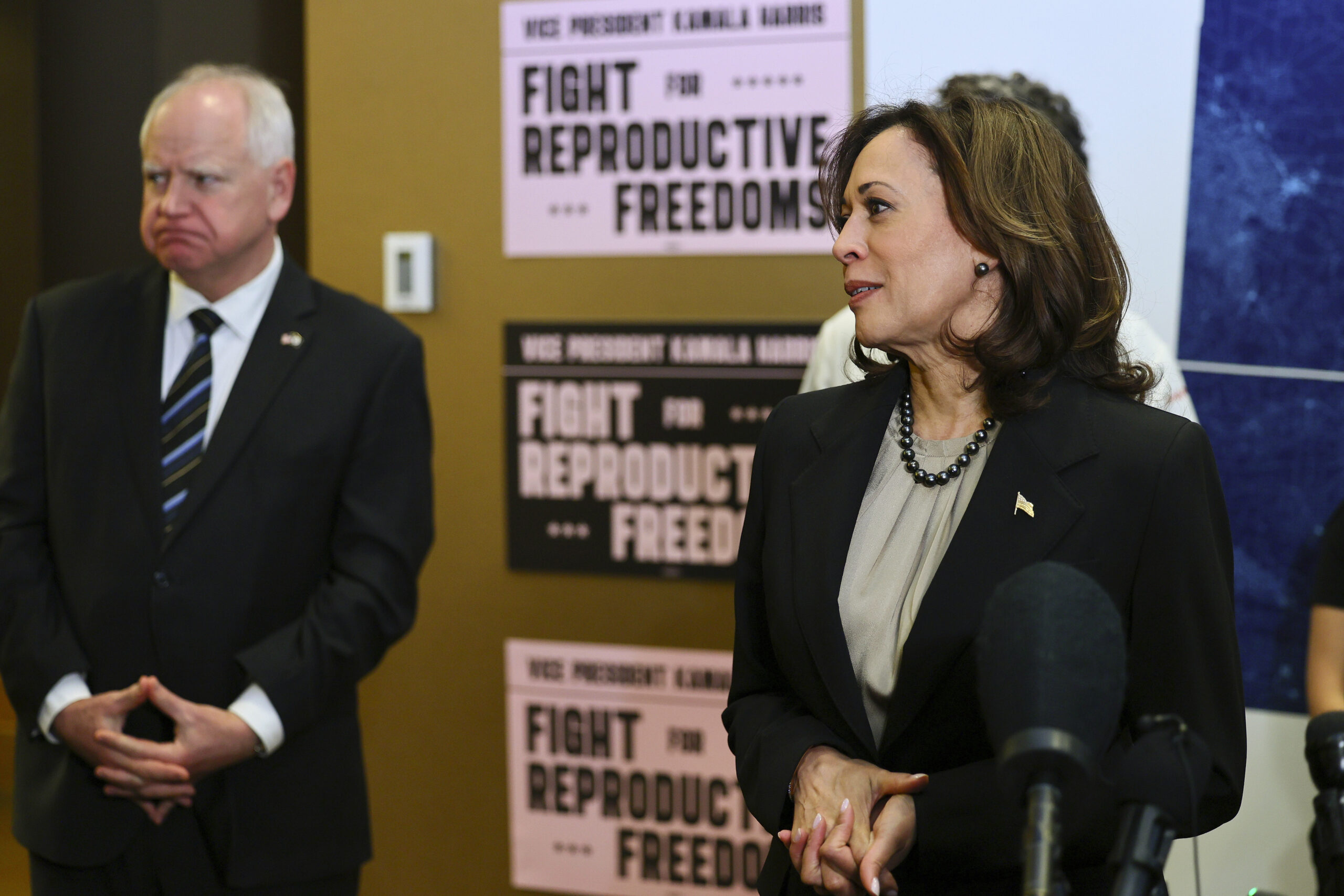
Hirsch said campaigns dissolve quickly after an election, making it hard to know who should be held responsible for unpaid bills. But she said the city has limited options for revenue to cover these added costs. That’s led officials to try a new approach this election season.
“We’ve been working with the different venues to figure out a way that when the campaigns pay the venue, they put aside some funding to help support the extra security,” she said.
It isn’t a perfect system, according to Hirsch. She pointed out that Vance is holding his event at a private business, which doesn’t collect a deposit the city can draw from.
She also noted campaigns are not responsible for all of the additional public safety costs to the city. If a group of people gathers in support or protest outside of the event, she said city officers are responsible for making sure things remain safe.
“We have very few options in terms of revenue,” Hirsch said. “So we’re incredibly strict about all of our financial matters, and we’re looking to study every single expense and every possible source of revenue.”
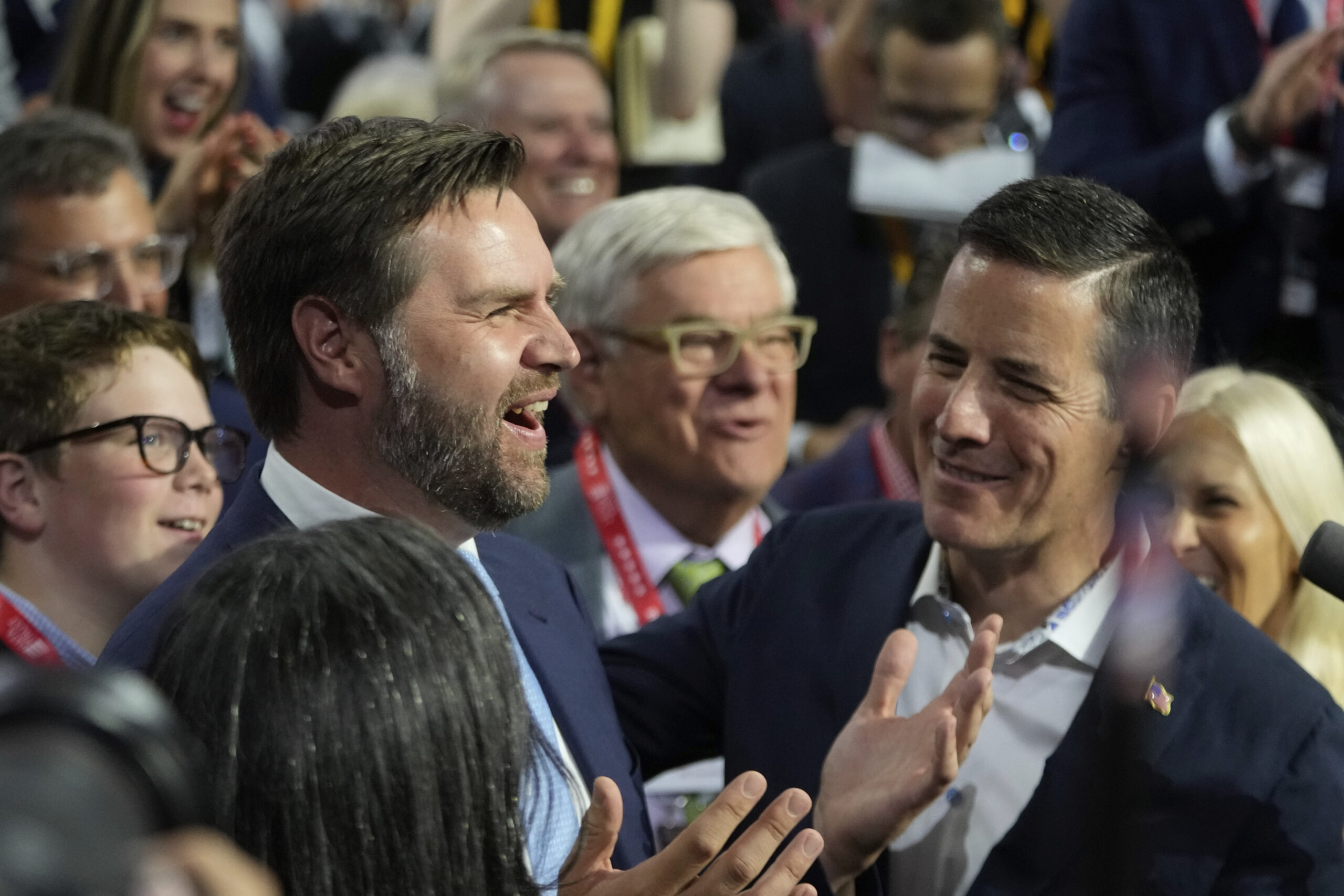
Unpaid campaign bills are becoming bigger problem
Eau Claire isn’t the only city that has unpaid campaign bills, including from events from nearly a decade ago.
The City of Green Bay still has nearly $24,000 in outstanding invoices from the 2016 presidential election, according to Mayor Eric Genrich’s office.
After former President Donald Trump visited in April, the city invoiced his campaign roughly $33,400. But Amaad Rivera-Wagner, the mayor’s chief of staff, said Trump’s campaign declined to pay.
“Our local government expects people to pay their bills, and that is something that we expect both of our residents and of the people that use local services,” Rivera-Wagner said, noting that other campaigns have paid public safety invoices.
Green Bay did receive payment from President Joe Biden’s campaign for an event in June, which cost the city nearly $7,000, according to Wisconsin Watch.
Rivera-Wagner said these costs can include police and EMT staffing, use of city vehicles and road closures.
But Hirsch said hosting political rallies can also bring money into a community. She’s expecting to see a boost in tourism revenue on Wednesday as people drive into Eau Claire for both campaign events, to eat at local restaurants and stay at hotels.
Wisconsin Public Radio, © Copyright 2025, Board of Regents of the University of Wisconsin System and Wisconsin Educational Communications Board.




